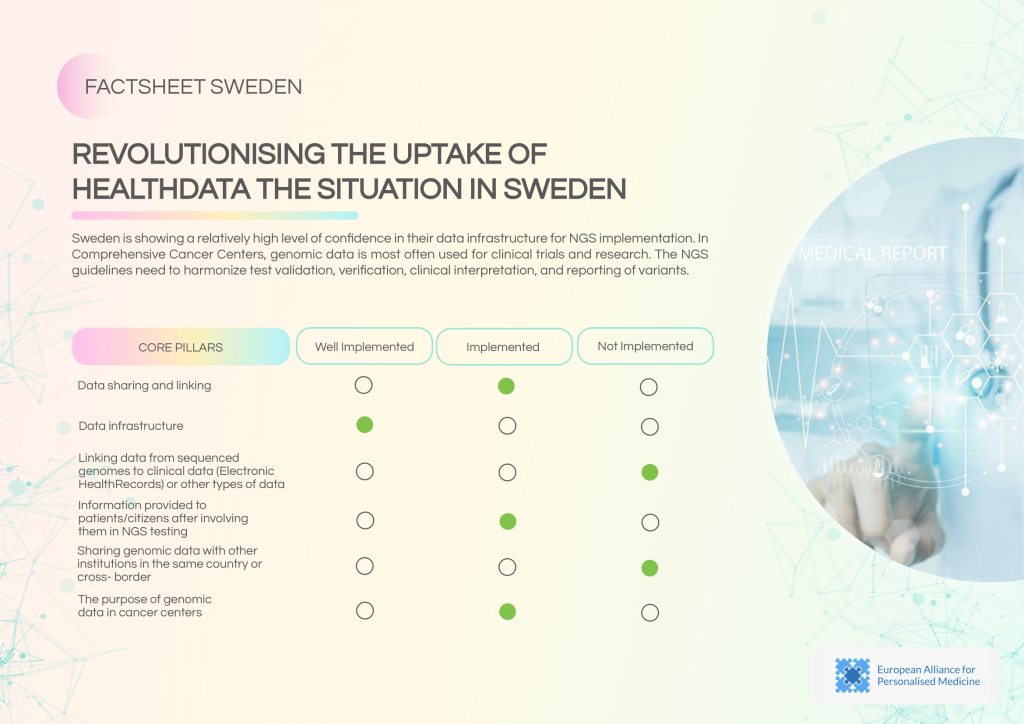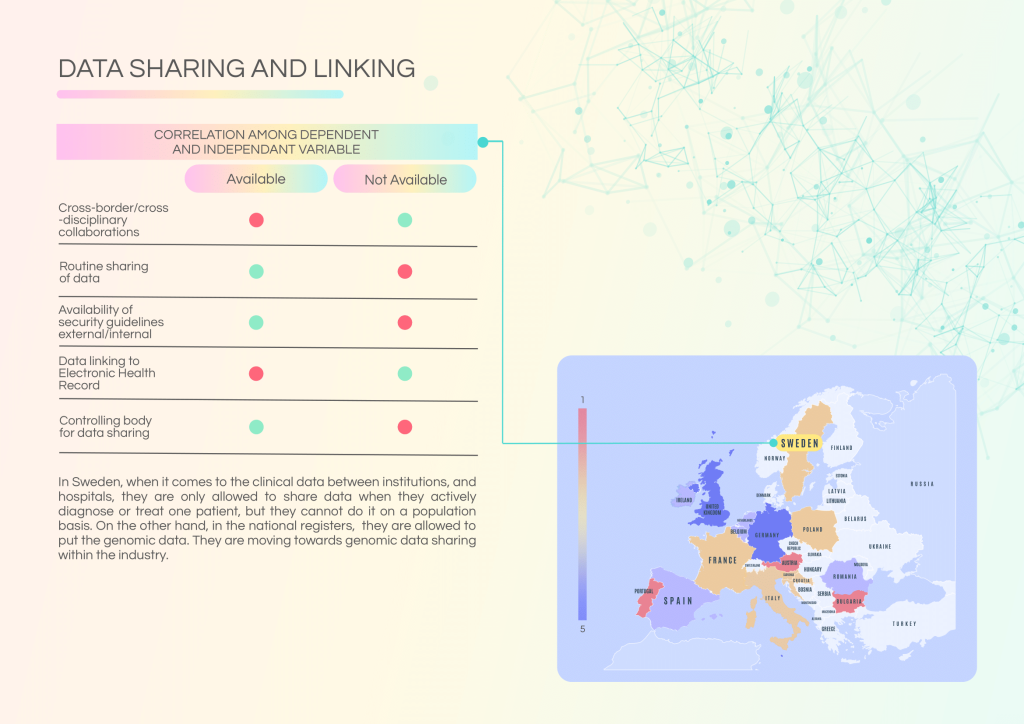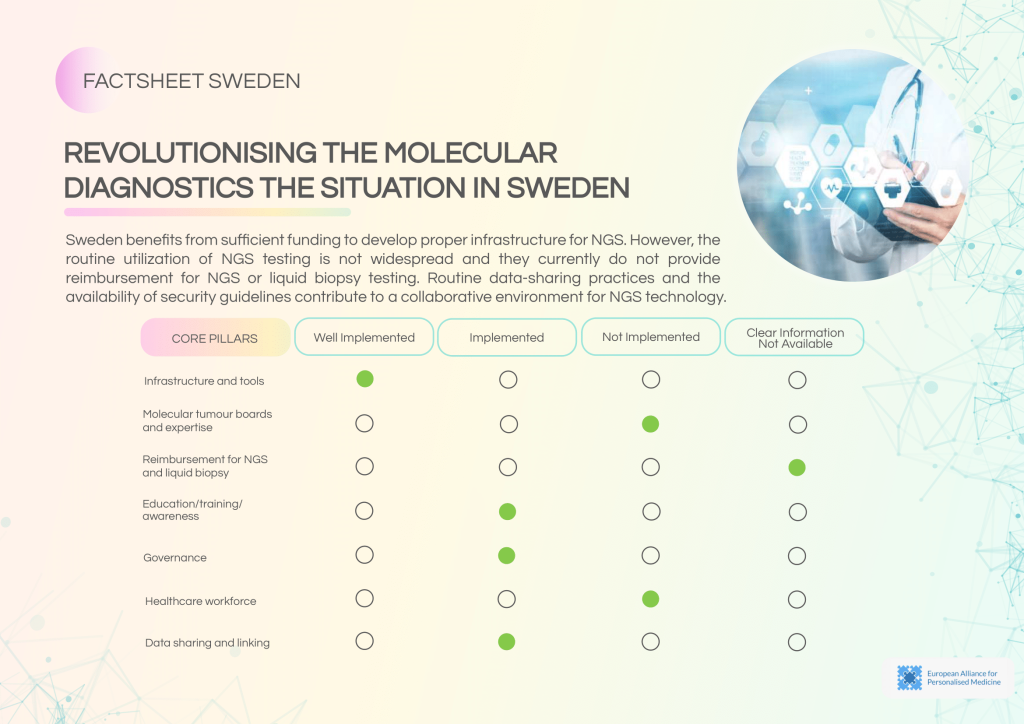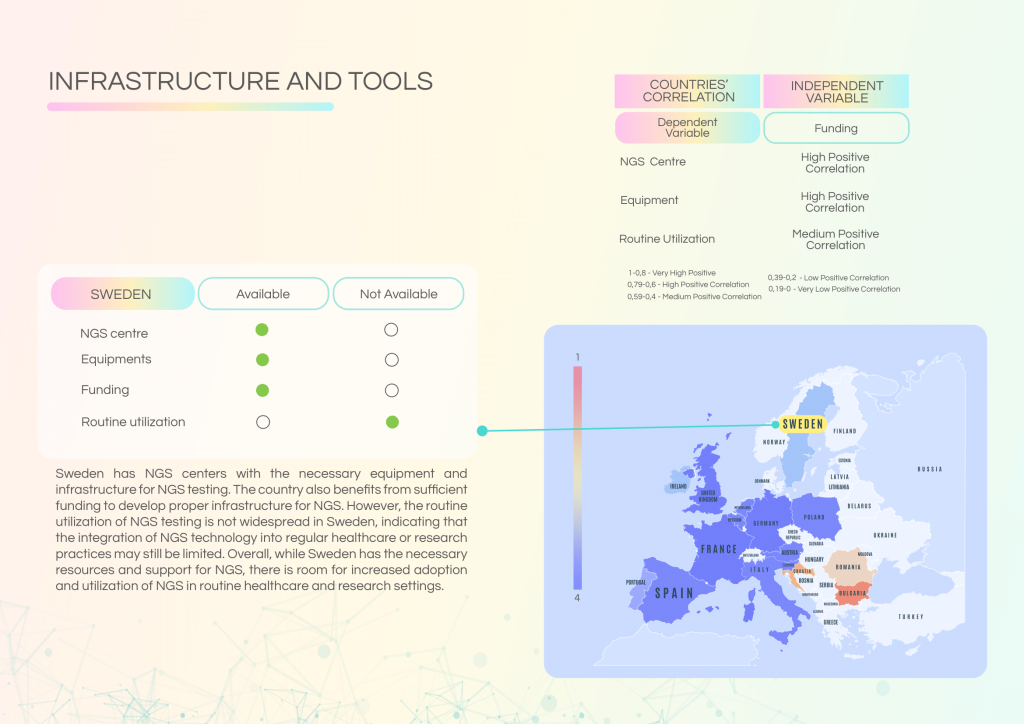Sweden has established a strong foundation for genomic data management and NGS infrastructure, with national solutions for research data sharing and a high level of public trust in anonymized data usage. The country’s well-developed cancer registries and secure data governance frameworks support precision oncology initiatives. However, routine clinical application of NGS, workforce capacity, reimbursement mechanisms, and cross-border collaborations remain limited. Addressing these systemic gaps will be crucial to fully realise Sweden’s potential in delivering personalised cancer care.
_______________________________________________________________________________
Quick access
Explore Sweden’s progress across two key areas of personalised cancer care. One factsheet explores the national health data ecosystem, while the other analyses the state of molecular diagnostics and NGS implementation.
Click below to access each document directly.
Revolutionising Health Data Uptake

Sweden benefits from a high level of confidence in its data infrastructure, supported by national registries and secure data-sharing practices. Data linking to Electronic Health Records (EHRs) is in place for direct patient care but remains limited for population-level insights.
Strengths of Sweden’s health data landscape:
- High public trust in anonymized data usage for research.
- Security guidelines in place for data protection.
- Coordinated efforts to build national research data platforms.

Challenges and areas for improvement:
- Data linking to EHRs is limited beyond individual patient care contexts.
- Cross-border collaborations and multi-institutional data exchange are minimal.
- Routine sharing of genomic data across cancer centres is inconsistent.
Policy recommendations:
- Foster cross-border collaborations to expand data-sharing ecosystems.
- Enhance data governance structures to facilitate broader integration of genomic data.
- Develop a national molecular registry to centralize NGS data for research and policy-making.
Revolutionising Molecular Diagnostics
Sweden possesses adequate infrastructure and funding for NGS but faces challenges in translating these resources into routine clinical practice. Reimbursement mechanisms are lacking, and the integration of NGS into daily care remains limited.
Key strengths of Sweden’s molecular diagnostics landscape:
- Established NGS centres with appropriate equipment and infrastructure.
- Educational programmes and workshops available to increase NGS awareness.
- Routine consultation meetings for tumour cases, albeit with limited patient volume.

Current barriers:
- No reimbursement for NGS or liquid biopsy, creating access challenges.
- Lack of dedicated Molecular Tumour Boards (MTBs) for systematic case discussions.
- Workforce shortages in bioinformatics and molecular pathology.
- Limited participation in ISO accreditation and external quality assessments.
Policy priorities:
- Implement reimbursement pathways for NGS and liquid biopsy.
- Establish a national MTB framework to streamline molecular case discussions.
- Expand workforce training programmes to build necessary expertise.
- Promote ISO certification and quality assessment for NGS services.


